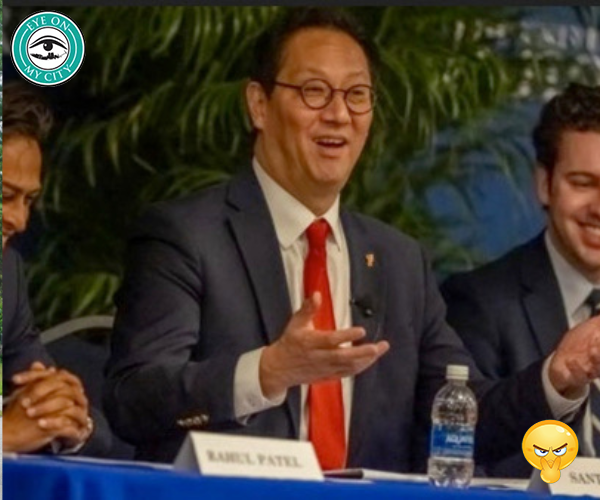We elect individuals to represent us, address infrastructure needs, address safety needs, and act financially responsible with our tax dollars. In Parts 1 and 2 of Acting as Entrepreneurs with Your Money city officials wasted millions of your tax dollars in real estate and public transit. Part 3 looks at the Downtown Investment Authority (DIA).
The DIA, Duval’s Community Redevelopment Agency (CRA), is a nine-member board five appointed by the mayor and confirmed by the city council and the remaining 4 appointed by the council president and confirmed by the council. The board was created to revitalize downtown and is responsible for approving, no bidding or competition, development projects. The DIA handles millions of dollars in grants, city funds, and tax incentives with no need for city council approval; not accountable to voters. DIA does require the approval of city council to borrow funds exceeding what is in the Redevelopment Trust Fund, to zone or rezone, to vacate public right of ways, or to issue bonds.[1]
Recently, Mayor Lenny Curry appointed Chief of Staff Brian Hughes interim CEO of DIA and a former business partner, Todd Froats, current president of ICX Group, to the DIA board. Conflict of interest should be front and center over these appointments. DIA now has close ties to the mayor’s office and the authority to pick and choose the benefactors of public dollars subsidizing private development. Where is the public scrutiny over this?
Apparently, the public scrutiny is not in Jacksonville, but it is present in other Florida cities. In 2015 in Miami-Dade a grand jury was convened to investigate all ten of the CRAs in the county.[2] Among the 29 recommendations put forth was an increase in oversight and more detailed reporting on use of funds. In 2015 the Federal Bureau of Investigations (FBI) began investigating the Tallahassee Community Redevelopment Agency in an undercover operation, which also involved Mayor Andrew Gillum. In 2017 the FBI issued subpoenas for all communications, records, and proposals the agency handled from 2012 to present.[3]
The Florida Legislature, in 2017, recognized a need for stricter regulation regarding CRAs, so the house drafted a bill to address the needed regulation, but it did not pass.[4] With more than 200 CRAs in Florida it is no wonder that it didn’t, as it might interfere with the funds flowing to the “well connected” and elite. The James Madison Institute calls it political entrepreneurship in an article titled Community Redevelopment Agencies Stifle Urban Development.[5]
From the James Madison Institute article “In fiscal year 2014-2015, Florida CRAs reported $594.4 million in revenues, $605.2 million in expenditures, and $714.5 million in debt. Over ten years, Florida CRAs issued $1.34 billion in bonds”.[5] These agencies don’t suffer financial loss when projects fail or exceed budget cost, as they are using other people’s money. The agency members are appointed, not elected, by politicians and therefore not accountable to Floridians.
DIA members, appointed by the mayor, have the authority to choose who and who will not enjoy the benefits of project approval. Californians recognized this unfair playing field in 2011 and eliminated 400 CRA’s across the state.[6] Does DIA practice political entrepreneurship? Is there a conflict of interest with Curry appointing a former business partner, Todd Froats, and his chief of staff, Brian Hughes, to the DIA? Does DIA participate in “pet projects” for the elite in Jacksonville? Is it time for Floridians to take California’s example?
[1] “Summaries Studies.” Downtown Investment Authority, dia.coj.net/downtown/Summaries-Studies.
[2]Fernandez Rundle, Katherine. “Final Report of the Miami-Dade County Grand Jury.” Www.broward.org, Eleventh Judicial Circuit of Florida, 3 Feb. 2016, www.broward.org/BrowardHousingCouncil/ResearchDemographics/Documents/CRA-Final-Grand-Jury-Report-Miami-2015.pdf.
[3]United States District Court for the Northern District of Florida. Subpoena To Testify Before A
Grand Jury. Federal Bureau Of Investigations, Tallahassee, 2017
https://www.documentcloud.org/documents/3872710-U-S-District-Court-Grand-Jury-
Subpoena-to-the.html
[4]Raburn, Jake. “CS/CS/CS/HB 13 – Community Redevelopment Agencies”. Florida House Of
Representatives, 2017, http://www.myfloridahouse.gov/Sections/Bills
/billsdetail.aspx?BillId=58987. Accessed 20 Oct 2018.
[5]Staley, Samuel, et al. “Community Redevelopment Agencies Stifle Urban Development.” James Madison Institute, 6 Dec 2017, https://www.jamesmadison.org/community-redevelopment-agencies-stifle-urban-development/.
[6] Brandon Powell, e Fall of California’s Redevelopment Agencies and the Rise of Sustainable Communities Investment Authorities: How SB 1 Can Maximize Fairness and Economic Growth, 42 W. St. U. L. Rev. (2015). Available at: h p://lawscl.org/wslawreview/vol42/iss1/3
[author] [author_image timthumb=’on’]https://eyeonjacksonville.com/wp-content/uploads/2018/04/Debbie-G.jpg[/author_image] [author_info]Debbie a native of New York became a resident of Jacksonville via the U.S. Navy. After separating from the navy she worked for both Grumman Aerospace and later Northrup-Grumman Aerospace. After almost 20 years in the aviation industry, she went back to college to change professions. Going back to school as an adult that had lived all over the United States and abroad she had experience in culture and circumstance, which created an incongruity with the material being taught. At that point she began questioning the validity of the material and made the observation that to pass her courses she had to agree, at least on paper, with the material. She graduated about the same time as the Wall Street crash of 2008 and jobs were now difficult to find. So, with time on her hand she began to look into other areas to see if the incongruity existed outside of the college curriculum as well. This is where her mission for the truth began. Since then she has worked to get facts out to the public.[/author_info] [/author]





